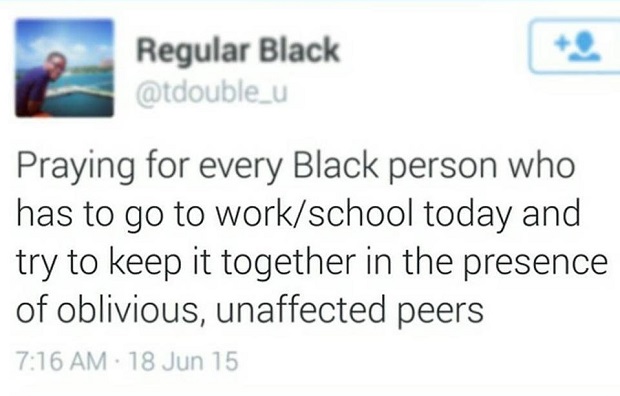
I usually write for The Inclusion Solution on Wednesday nights. I intended on this week being no different, but as news circulated of the killing of Alton Sterling at the hands of a police officer, I knew a decompress would be necessary before sharing my own reflections. So when I woke up this morning, prepared to write this post, it was particularly troubling to see yet another tragedy dominate my social media feed and headlines. Only two days after Alton Sterling was shot and killed by a police officer, another video surfaced of Philando Castile, a black man, being shot by a police officer—while in the car with his girlfriend and 4-year-old daughter.
This is all too much.
Watching these occurrences of police brutality is traumatizing. Digesting the hurt and pain experienced by the victims’ loved ones, reading comments that seem to challenge their and your very humanity, feeling helpless because, if the past repeats itself, justice may not be served, and waking up to hear that it has happened again, is all too much. Watching the media villainize victims and collude with justifying [black] death is all too much. Moreover, having to go to work in environments where most of your counterparts may be unaware of, unaffected by, or just could care less about the very things that are eating you up inside, can be all too much. Consider this post shared by a black, female, Millennial professional:
“Been around white folks all day. I don’t think people understand how difficult that it is after another traumatic experience within the black community. They don’t feel that pain, that intense hurt, that “What if someone I love is next?… What if I’m next?” We get a couple of months, a little recovery time, then it happens again. It’s just enough to feel mentally stable, to go into each day being proud of our blackness without having to think about the pain of it. Or what our ancestors went through, what our brothers encounter, how my Soror died, and how her manner of death is still questionable. It sucks. Some days I just can’t do it. I can’t see faces of people who get to just go when I can’t JUST GO.
I wrote this status last night, thinking today would come and I would feel better. I don’t.”
–Black, female Millennial professional
I think her thoughts shed light on one (often unexplored) dynamic of being black in corporate America–Trauma and its impact on the workplace during the age of #BlackLivesMatter. I remember waking up to news of Mike Brown, Sandra Bland, Freddie Gray, and the Charleston 9, having to pull myself together, amidst the frustration, sadness, and anger. And ultimately, go on with my [work]day, as if nothing ever happened. It certainly impacted by productivity and engagement.
That said, what can companies do to create safe spaces, mechanisms of “support” for employees who feel impacted by these events? Certainly, if the intent of “inclusion,” is for employees to feel comfortable bringing their “whole self” to work, then companies should see themselves as stakeholders in many of the events that go on outside the walls of their organizations. I don’t have the answers, nor do I know what this looks like, but I think having some intentional dialogue around this is way overdue.



















Thank you for this! I shared these exact sentiments with my manager this morning. Even if to just acknowledge that some staff are dealing with the trauma – but do/say something.